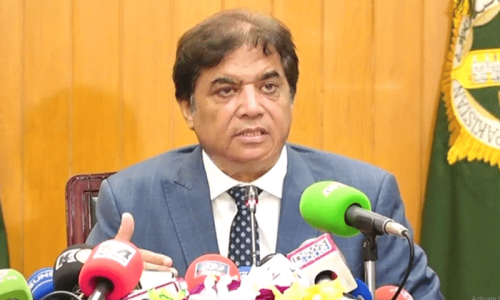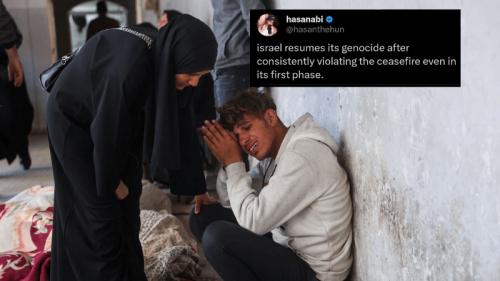FANATICS flourish in the soil of hatred. The seeds of bigotry were sown in Pakistan unfortunately by none other than an army general. Let me share a personal account.
Earlier in my career as assistant superintendent, I was posted as sub-divisional police officer of Jhang city in 1981. Little did I know I had walked into the epicentre of developing sectarian tensions and conflicts. I found the Barelvi and Deobandi clerics hurling the choicest expletives at each other on their mosque loudspeakers.
Suddenly, we noticed the Shia community being targeted in tirades by the Deobandi clerics, chief amongst them one diminutive firebrand named Haq Nawaz. This rang alarm bells, especially in the wake of the Iranian revolution and the Soviet Union’s invasion of Afghanistan in 1979. A proxy war, it appeared, was being fought on our soil between the international stakeholders. The Anjuman-i-Sipah-i-Sahaba was established in response to the formation of Tehreek-i-Nifaz-i-Fiqah Jafria. The name of the former was later changed to Sipah-i-Sahaba Pakistan.
Sectarian tensions promoted in Jhang in the early ’80s had horrible consequences for the rest of the country.
I was soon to see the fallout on law and order. Every year on Muharram 7, Shias take out one of the largest mourning processions in Jhang city. Some locations along the route traditionally entail tension which is resolved in advance through adherence to a code of conduct.
In 1981, while I was on duty for the procession, Maulvi Haq Nawaz reached a mosque en route and violated the code of conduct by launching into a provocative speech. This created unrest amongst the Shia processionists. They stopped near the mosque and refused to move forward unless the cleric was stopped. With a 40-men force, I was caught between the fury of the huge procession and the fire-breathing cleric. Deputy commissioner Shehzad Hasan Parvez and district superintendent police Ahmed Nasim arrived, entered the mosque and tried to persuade Haq Nawaz to put an end to his hate speech and leave the mosque, but he refused. The Shia youth became restive and wanted to attack the mosque.
It was time for a quick decision: stop the madness or allow a bloodbath. I asked the policemen to take off their shoes and we stormed the mosque, making a beeline for the rostrum where the five-foot ‘maulvi’ was making the congregation chant vitriolic sectarian slogans. Getting hold of him by his neck, we dragged him out of the mosque, put him in my police jeep and headed straight to the police station. Meanwhile, the procession started moving along its assigned route. I was in the process of filing a report of the incident when I received an urgent call from the deputy commissioner to reach his camp office.
When I reached there I found the DC and SP standing outside in the lawn looking worried. The DC told me he had received a call from Gen Ziaul Haq who wanted ‘Maulana’ Haq Nawaz to be released forthwith. I was taken aback. How could we do that while the Shia procession was on the move? What if the enraged mullah headed back to another mosque en route and resumed his incendiary campaign? As in charge of the law and order situation, I could not allow that to happen. “You mean you want to defy the orders of the chief martial law administrator?” asked the DC in a mocking tone, for he understood the administrative imperative of maintaining order rather than appeasing a mullah.
I told the DC and SP that it was for them to handle the military dictator while the police would fulfil their duty. Both of them supported my viewpoint and asked that the cleric be taken away from the police station located in the heart of the city and released on bail after the procession. I had no idea how they placated Gen Zia but in my heart I was beholden to them for not letting the police down.
This episode, fairly early in my career as a law-enforcement officer, made me wonder at the nexus between the mullah and the military developed in the early 1980s and sustained throughout that decade in furtherance of ‘national interests’ based on convoluted ideology and politics. I got promoted and left as SP Quetta and served in Balochistan for the next four years. Meanwhile, Jhang witnessed some bitter politics and sectarian violence. Maulana Haq Nawaz even won a provincial assembly seat. In an era of ‘controlled’ democracy, some militant mullahs were definitely enjoying state patronage.
The sectarian hatred unleashed in Jhang led to horrendous consequences all over the country with tit-for-tat killings in a matter of a few years. By the time I returned to the Punjab Police in 1989, the sectarian menace had spread everywhere. Haq Nawaz’s assassination in 1990 followed the deadly militant violence perpetrated by Lashkar-i-Jhangvi (LJ) formed by Riaz Basra, Malik Ishaq, Akram Lahori and Ghulam Rasul Shah (four diehard supporters of Jhangvi’s mission).
Riaz Basra was arrested in Lahore in 1992 under my command as police chief of the city. Despite my request for his jail trial, after my transfer in 1994, he was taken from prison to the Model Town courts complex from where he escaped from the judicial lock-up and unleashed a reign of terror for about 10 years as a fugitive.
On promotion, I got posted as deputy inspector-general of Faisalabad police range on Aug 11, 1997. Late IG Punjab Jahanzaib Burki gave me one task: arrest Malik Ishaq of LJ. Just about a month later, on Sep 13, Ishaq was arrested by Faisalabad police in a sting operation. But by manipulating a faulty criminal justice system which failed to protect the judges, victims, witnesses, investigators, prosecutors and prison officials, the dreaded LJ mastermind survived for long and was even suspected to have received patronage from some political and security elements.
In a nutshell, indifference, apathy and even collusion by elements of the state have resulted in our nation paying a heavy price in terms of violence and bloodshed. Now at last, another army general is trying to reverse the tide of sectarianism by hopefully breaking the nexus between obscurantist mullahs and the deadly militants, including all the non-state actors, and their erstwhile sponsors. He is fighting a defining battle for the soul of Pakistan.
Good luck, General.
The writer is a retired police officer.
Published in Dawn, December 5th, 2015











































